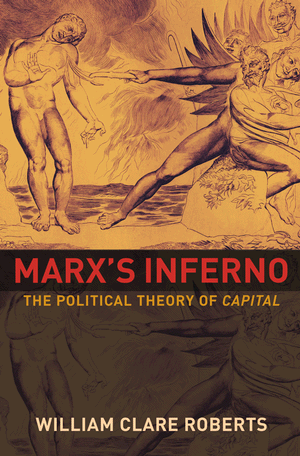Modern American conservatism is a huge and various body of thought, with many mansions. Has Obama explored it? I'll lend him my Nash if he wants to make a start. Heck, I have read Kolakowski all the way through, all three volumes; has Obama read Hayek? Buckley? Kirk?Kolakowski was an ideological anti-Marxist, and Main Currents is a faux-intellectual hatchet-job. An anti-Marxist who reads Kolakowski will find all of their prejudices bolstered, and that's about it. One might as well say: "Heck, I've read Liberal Fascism all the way through; has Obama read Hayek? Buckley? Kirk?"
UPDATE: And, just to be clear, this is not a problem because silly people at National Review read Kolakowski. I'd expect no less from them.
The number of supposed scholars who cite Kolakowski as some sort of authority is what bugs me. I just finished reading a supposedly serious, academic article about the Marxist theory of revolution that based its interpretation of Marx on Kolakowski, and claimed that Althusser's thesis about the break between early and late Marx was refuted by Main Currents.
This is just dishonest; one of the fundamental and unquestioned premises of Kolakowski's whole approach is that there is an essential Marxism underlying everything in the Marxist tradition, and that the main currents of Marxism are all corrupted indifferently by this essential character. This thesis is not demonstrated, but presupposed. To say that such a presupposition "refutes" anything is to mistake a catechism for an argument.
Kolakowski doesn't read the texts of the Marxist tradition; he uses them as screens onto which he projects his catechism. There is nothing honest about Main Currents except the author's open avowal of his antipathy to Marxism.
UPDATE 2: Here is a useful rundown of Kolakowski's modus operandi:
Kolakowski, we are assured, has first-hand experience of the consequences of Marx's malign doctrine, and is thus in a better position than privileged and protected Western intellectuals to appreciate the flaws in that doctrine. Kolakowski's exposure to 'actually existing socialism' did influence his understanding of Marxism, but not in the way that Judt imagines. Despite his political changes of heart, Kolakowski has never shaken off the habits of thought he learned from doctrinaire Stalinists in the frosty first decade of the Cold War. In his early twenties Kolakowski made a name for himself as the Communist Party's most energetic critic of Catholicism, that traditional enemy of the Polish left.
The young Kolakowski's criticisms of the Catholic tradition betray the classical intellectual method of Stalinism. In essay after essay, Kolakowski essentialises a complex body of ideas, reducing it to a few crude formulations, links these formulations to discredited political positions, and gives the ideas a teleological quality, in an effort to undercut any future attempt to revise or otherwise rehabilitate them. Under the guise of intellectual history, the young Stalinist pursues the crudest political polemic.
The same procedure can be observed in My Correct Views on Everything and Main Currents of Marxism. Marx wrote millions of words in an extraordinary range of genres, from political journalism to poetry to history to 'pure' economics. This immense oeuvre is filled with change and contradiction. It is the record of a political and intellectual quest, not a set of commandments. Yet Kolakowski is able to reduce Marx's life's work to a few hackneyed formulations:
The idea that the whole theory of communism may be summed up by the single phrase 'abolition of private property' was not invented by Stalin...The point is that Marx really did consistently believe that human society would not be 'liberated' without achieving unity. And there is no known technique apart from despotism whereby the unity of society can be achieved...
A good example of the poverty of Kolakowski's method is his treatment of Marx's view of the likelihood and likely location of a future socialist revolution. Referencing a handful of texts, Kolakowski claims that Marx believed that socialist revolution would break out in the 'advanced' countries of the West, and that it was well-nigh inevitable. Marx's careful reassessment of the prospects for socialist revolution in the West after the destruction of the Paris Commune in 1871, and the growing interest he showed in Russia and other 'undeveloped' societies in the last decade of his life are ignored by Kolakowski, lest they disturb his smug attribution of failure to Marx's 'prophecies', and his claim that the Bolshevik revolution could never have been forseen by the author of Capital. (Kolakowski's claim that Marx could never have anticipated the October revolution looks rather uncomfortable beside his attempt to make Marx responsible for the degeneration of that revolution and the depredations of Stalin.)
Worse than Kolakowski's misuse of Marx's ouevre is his misunderstanding of Marx's method. Kolakowski treats Marx as a curious cross between a second-rate bourgeois social scientist and a wild-eyed prophet. Marx's use of the dialectic is treated either as a rhetorical affectation or as evidence of an appetitie for feverish pseudo-Hegelian speculation about 'destiny'. Determined to ridicule his subject as a dogmatic false prophet, Kolakowski is incapable of appreciating the way that the dialectical method informed all of Marx's thinking, making his concepts nuanced and contextual and open to continual refinement. Marx had no time for the static categories of bourgeois economics, just as he had no time for the dogmatism inherent in all prophecy. All of Marx's concepts, even concepts as fundamental as 'proletariat' or 'capital', were dialectical abstractions, slices of an infinitely complex and continually changing reality. Kolakowski, though, insists on freezing the concepts of Marx and his followers, and treating them like the definitions of a dour analytic philosopher or number-crunching sociologist.
